China's Hollywood studio buy-up begs questions
- Published
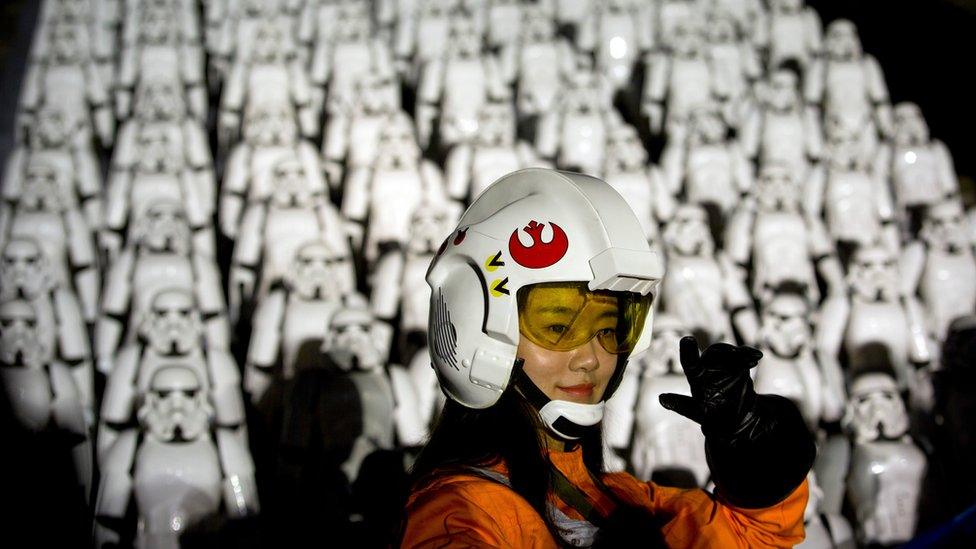
Star Wars has done big business in Beijing, but could future Hollywood blockbusters be made in China?
When Star Wars: The Force Awakens opened in Beijing over the weekend, it took $53m (£37m).
That is still under a fifth of the $238m that it took on the opening weekend in the United States, but the Chinese market is growing at a phenomenal rate - up 35% in 2015 over the previous year.
As the country gets more affluent, its people want to spend money on leisure - like in cinemas. There are about 15 cinema screens being constructed every day in China.
The snag for Hollywood is that there is a strict quota on foreign films being shown in Chinese cinemas - 34 a year. They have to pass the Chinese censors, so the ones that arrive are usually apolitical blockbusters.
So a canny businessman might wonder how the pent-up huge demand for films in China might be satisfied, given the quota.
The answer may have been found by China's richest man, Wang Jianlin. The Wanda Group which he runs has bought Hollywood's Legendary Entertainment, the maker of blockbusters Jurassic World and Godzilla.
If he gets Legendary, now part of his Chinese group, to make films in China, he, in effect, gets "Hollywood" movies without being subject to the imported film quota. He gets nearer to the movie-mogul nirvana of producing truly global films which can sell in both the United States and China, the world's two biggest markets.
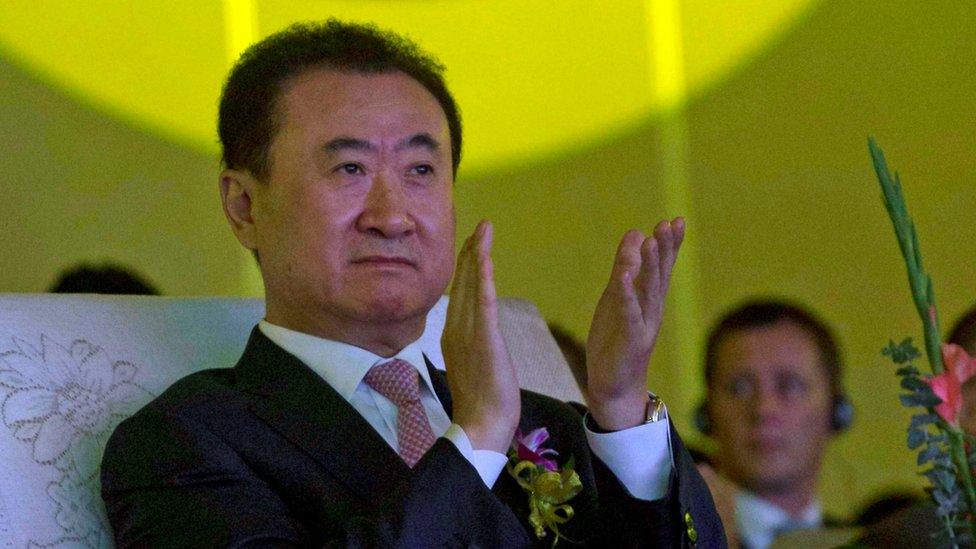
Wang Jianlin, now a Hollywood player
There is a snag - and that is the Chinese censor. Films for a global market would have to pass the censorship laws in all bits of that market and the Chinese censor is ultra-strict on politics.
So making films that sell big in both the US and China runs the risk of producing emasculated and boring ones.
Legendary Entertainment, now part of Wanda Group under the deal, have a film called Great Wall on the way. It is, according to Legendary, "the story of an elite force making a last stand for humanity on the world's most iconic structure". It is an alien movie somewhat removed from the realities of modern-day China.
Legendary specialise in blockbusters, heavy on noise, effects and action, and light on political implication - just the sort to go down well with the censor and a large chunk of the audience in both the United States and China.
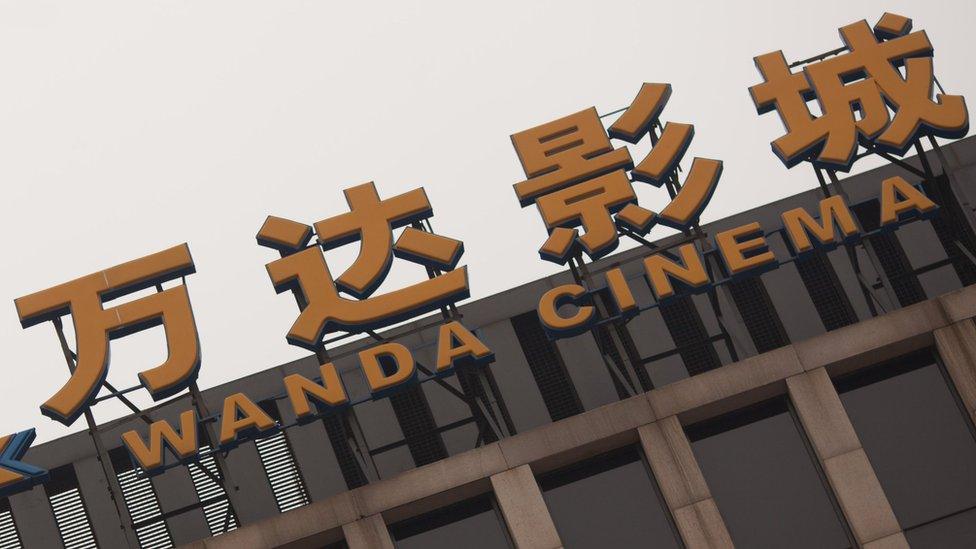
The Wanda brand is already well-known in China
Wanda Group is building what is claimed to be the biggest studio complex in the world, rivalling and exceeding Hollywood's grandest. It's being constructed in the eastern Chinese city of Qingdao and will have 30 sound-stages and a permanent copy of a New York street - as well as China's largest outdoor water-tank.
It will have Hollywood technical standards and Chinese costs. It will also be within the Chinese system and so not subject to the quota on imported films imposed by the Chinese government.
Buying Legendary Entertainment puts Wanda on the road to becoming a global media company and one of the world's biggest players in movie production. It already owns China's biggest chains of cinemas as well as cinemas in the United States. It now has a big Hollywood producer of blockbuster movies.
In Hollywood, movie moguls salivate at the thought of how much money they could one day make at cinemas in China. On some industry estimates, China could soon overtake the United States as the world's biggest market for movies.
But there is an unanswered question: can Wanda and its new Hollywood acquisition make movies which keep cinema-goers happy in both the United States and China while also not offending the Chinese censor?
- Published26 January 2015
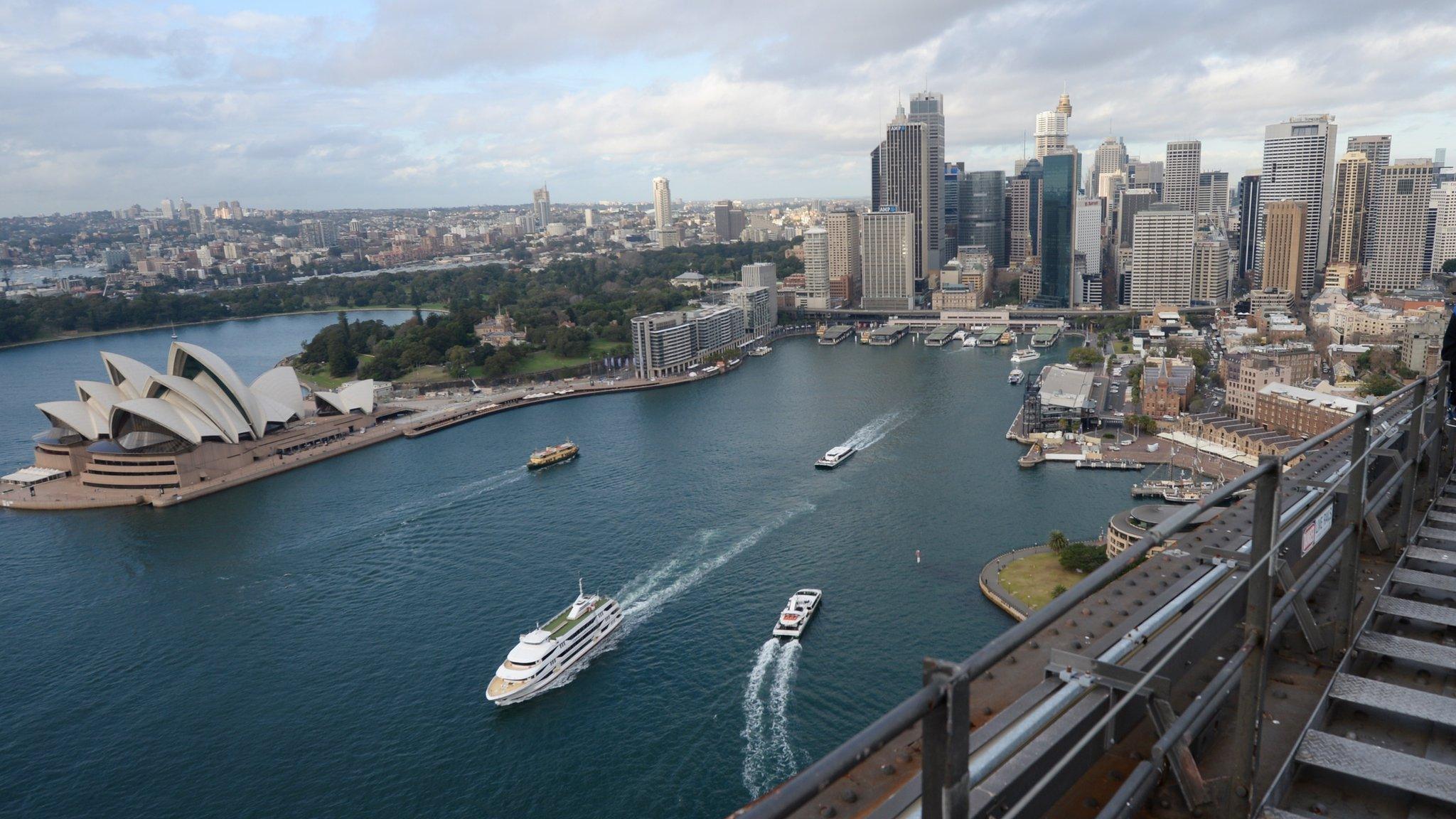
- Published10 February 2015
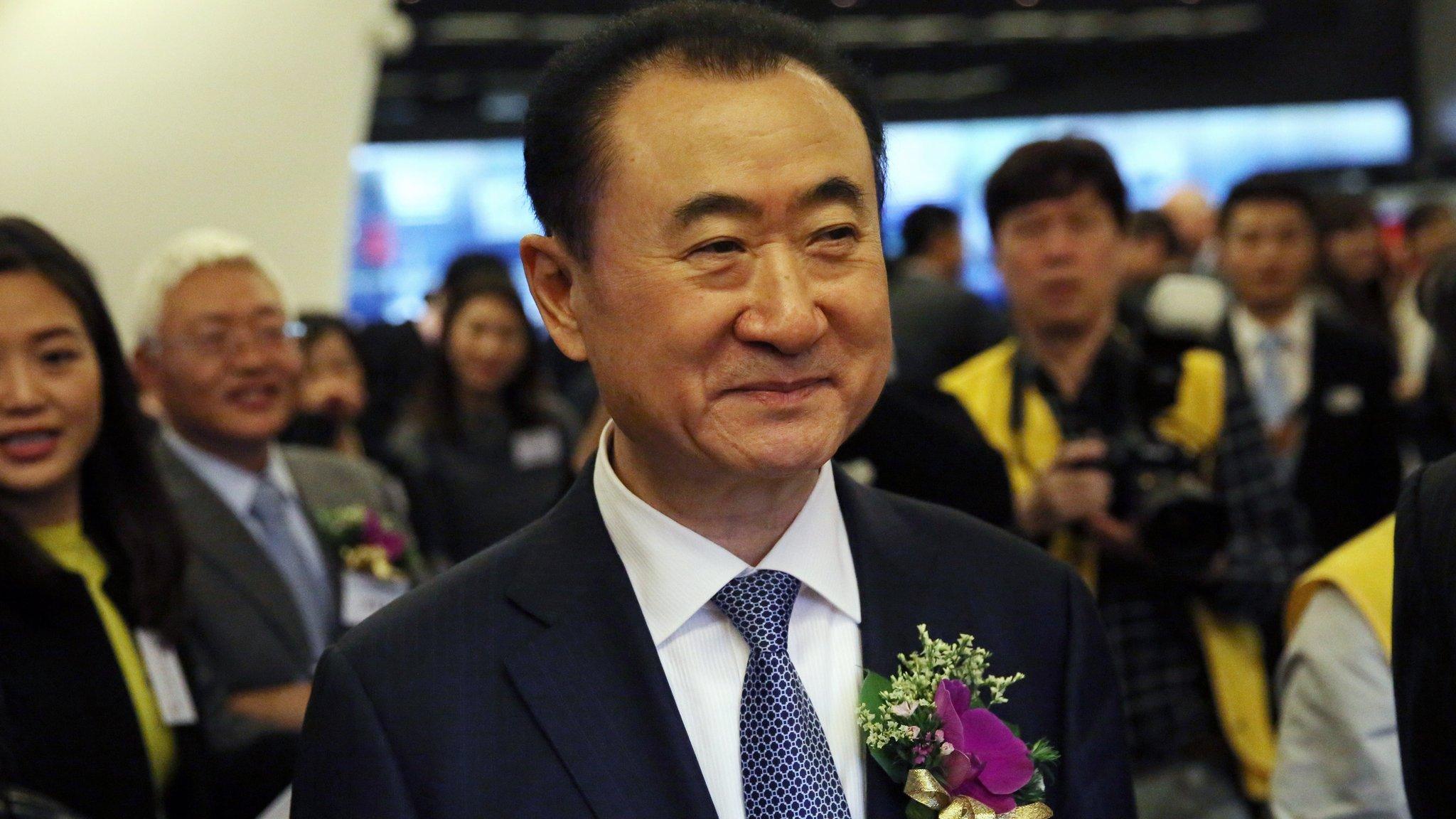
- Published30 October 2014